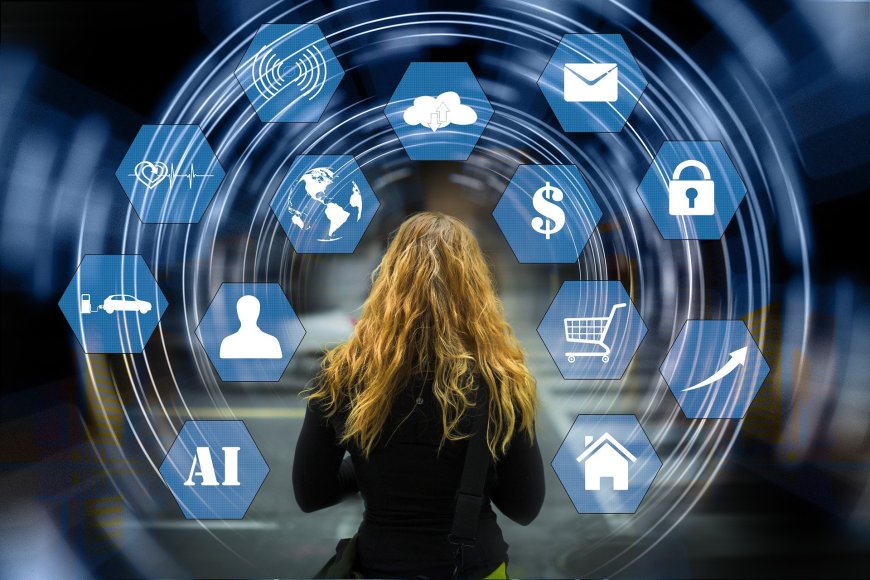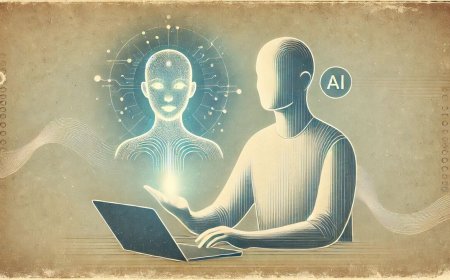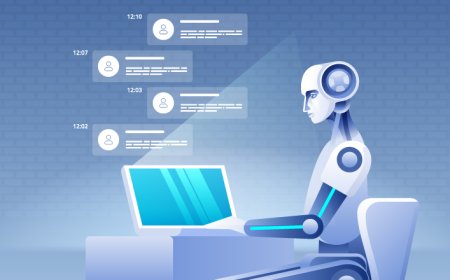The Impact of AI on Customer Experience Automation
Discover how AI revolutionizes customer experience automation. Learn about benefits, challenges, and real-world applications in e-commerce, healthcare, and more.

Artificial Intelligence (AI) is rapidly changing the way businesses interact with their customers. By automating various aspects of customer experience (CX), AI is helping companies deliver faster, more personalized, and efficient services. This article explores how AI is revolutionizing customer experience automation, its benefits, challenges, and real-world applications.
1. Understanding Customer Experience Automation
a. What is Customer Experience Automation?
Customer experience automation refers to the use of technology to streamline and enhance customer interactions. This includes everything from automated chatbots to personalized recommendations. For example, when you shop online and receive product suggestions based on your browsing history, that's customer experience automation in action.
b. Importance of Automation in Modern Businesses
In today's fast-paced business environment, automation is crucial for streamlining processes and improving efficiency. It allows businesses to handle large volumes of customer inquiries quickly and accurately, freeing up human resources for more complex tasks.
2. The Role of AI in Enhancing Customer Experience
a. AI-Powered Personalization
One of the most significant ways AI enhances customer experience is through personalization. AI can analyze vast amounts of data in real-time to provide insights into customer preferences and behaviors. This allows businesses to offer tailored recommendations and experiences that resonate with individual customers.
b. Predictive Analytics for Better Engagement
AI's predictive analytics capabilities enable businesses to anticipate customer needs and behaviors. By analyzing past data, AI can predict future trends and customer actions, allowing companies to proactively engage with customers and meet their needs before they even realize them.
c. Intelligent Chatbots and Virtual Assistants
AI-powered chatbots and virtual assistants provide 24/7 support, ensuring that customers can get help whenever they need it. These tools can handle a wide range of queries, from simple FAQs to more complex issues, improving query resolution times and customer satisfaction.
3. Benefits of AI in Customer Experience Automation
a. Improved Response Times
AI can deliver instant solutions to customer inquiries, significantly reducing response times. This is particularly beneficial in industries like e-commerce and banking, where quick resolutions are crucial for customer satisfaction.
b. Enhanced Scalability
AI allows businesses to manage large customer bases efficiently. Automated systems can handle thousands of interactions simultaneously, ensuring that every customer receives timely and accurate service.
c. Cost Savings and Resource Optimization
By reducing the dependency on human agents, AI can lead to significant cost savings. Automated systems can handle routine tasks, freeing up human resources for more strategic and complex activities.
4. Real-World Applications of AI in Customer Experience
a. AI in E-commerce
In e-commerce, AI is used to provide personalized product recommendations and streamline checkout processes. For example, Amazon uses AI to suggest products based on a customer's browsing and purchase history, enhancing the shopping experience.
b. AI in Financial Services
In the financial sector, AI is employed for fraud detection and personalized customer services. Banks use AI to monitor transactions for unusual activity, helping to prevent fraud. Additionally, AI-powered chatbots provide personalized financial advice and support.
c. AI in Healthcare Customer Support
In healthcare, AI is used for patient scheduling and query resolution. For instance, AI-powered virtual assistants can help patients book appointments, answer common health-related questions, and provide reminders for medications and follow-up visits.
5. Challenges and Limitations of AI in Customer Experience Automation
a. Overdependence on Technology
While AI offers numerous benefits, there are risks associated with overdependence on technology. System failures can lead to service disruptions, affecting customer experience. It's essential for businesses to have backup plans in place to mitigate these risks.
b. Data Privacy and Security Concerns
Handling sensitive customer information requires robust data privacy and security measures. Businesses must ensure that AI systems are secure and comply with data protection regulations to safeguard customer data.
c. Limited Human Touch
While automation is efficient, it can lack the empathy and personal touch that human interaction provides. Balancing automation with human engagement is crucial for delivering a well-rounded customer experience.
6. The Future of AI in Customer Experience Automation
a. Growing Adoption of AI in Industries
The adoption of AI in various industries is on the rise. As more businesses recognize the benefits of AI, we can expect to see increased implementation across sectors, from retail to healthcare.
b. Advancements in AI Technology
Advancements in machine learning, natural language processing (NLP), and deep learning are continually enhancing AI's capabilities in customer experience. These technologies enable more accurate data analysis, better predictive analytics, and more natural customer interactions.
c. Combining AI with Human Interaction
The future of customer experience automation lies in combining AI with human interaction. Hybrid models that integrate AI-powered automation with human support can provide superior customer experiences, balancing efficiency with empathy.
7. Steps for Businesses to Implement AI in Customer Experience
a. Assessing Business Needs and Goals
The first step in implementing AI is to assess your business needs and goals. Identify areas where AI can provide the most significant benefits and plan your integration strategy accordingly.
b. Choosing the Right AI Tools and Platforms
Selecting the right AI tools and platforms is crucial for successful implementation. Look for solutions that align with your business needs and offer robust support and scalability.
b. Training Staff and Ensuring Smooth Transition
Preparing your staff for the transition to AI is essential. Provide training on how to use the new tools and ensure a smooth transition for both employees and customers.
8. Case Studies: Successful AI Implementation
a. AI in Retail: Amazon’s Personalized Recommendations
Amazon's use of AI for personalized product recommendations has significantly improved the shopping experience. By analyzing customer data, Amazon can suggest products that are highly relevant to individual shoppers, increasing sales and customer satisfaction.
b. AI in Banking: Chatbots in Customer Support
Leading banks have implemented AI-powered chatbots to enhance customer support. These chatbots can handle a wide range of customer inquiries, from account information to transaction assistance, providing quick and accurate support.
c. AI in Travel: Airlines Using Predictive Tools
Airlines are using AI's predictive tools to enhance passenger experiences. By analyzing flight data, airlines can predict delays and other issues, allowing them to proactively manage customer expectations and provide better service.
9. Key Takeaways on AI in Customer Experience Automation
AI offers numerous benefits for customer experience automation, including improved response times, enhanced scalability, and cost savings. However, it also presents challenges such as data privacy concerns and the need to balance automation with human touch. Despite these challenges, AI's transformative potential in automation is undeniable, making it a crucial tool for modern businesses.
Conclusion
AI is playing a pivotal role in shaping the future of customer experience. By embracing AI responsibly, businesses can deliver more personalized, efficient, and satisfying customer experiences. The key is to strike a balance between automation and human interaction, ensuring that technology enhances, rather than replaces, the human touch.
Frequently Asked Questions (FAQs)
1. What is customer experience automation?
Customer experience automation is the use of technology to streamline and enhance customer interactions, such as through automated chatbots and personalized recommendations.
2. How does AI enhance customer experience?
AI enhances customer experience through personalization, predictive analytics, and intelligent chatbots, providing tailored and efficient service.
3. What are the benefits of AI in customer experience automation?
Benefits include improved response times, enhanced scalability, and cost savings through reduced dependency on human agents.
4. What are some real-world applications of AI in customer experience?
Real-world applications include personalized product recommendations in e-commerce, fraud detection in financial services, and patient scheduling in healthcare.
5. What are the challenges of AI in customer experience automation?
Challenges include overdependence on technology, data privacy concerns, and the need to balance automation with human touch.
6. How can businesses implement AI in customer experience?
Businesses can implement AI by assessing their needs, choosing the right tools, and training staff for a smooth transition.
7. What is the future of AI in customer experience automation?
The future involves growing adoption of AI, advancements in technology, and combining AI with human interaction for superior customer experiences.
8. How does AI improve response times in customer service?
AI delivers instant solutions to customer inquiries, significantly reducing response times and improving customer satisfaction.
9. What are the data privacy concerns with AI in customer experience?
Data privacy concerns involve handling sensitive customer information securely and complying with data protection regulations.
10. How can AI and human interaction be combined for better customer experience?
Combining AI with human interaction involves using hybrid models that integrate AI-powered automation with human support to balance efficiency with empathy.
What's Your Reaction?








































